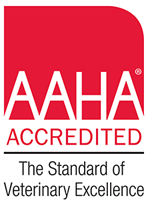Guinea pigs are great starter pets for children due to their docile temperament and relative ease of care, not to mention that they’re more resilient than smaller rodents like hamsters or gerbils. Another name for these pets that are native to the Andes Mountains of South America is cavy.
General Characteristics:
The “pig’s” average lifespan is 5-7 years, though with proper care (and good genetics) they have been known to live up to 12 years! Their average full grown size (which they typically reach by 12-14 months) is 1 ½ to 2 ½ pounds and 8-12 inches in length. Pigs come in a variety of colors (brown, white, black, red, tan) and mixed colors and have different coat qualities. Common breeds include the Peruvian which has long silky hair, the Silky which has medium length silky hair, the Abyssinian which has rosettes, and the English or Shorthair which has a sleek, short coat.
Environment:
Pigs should be housed in a relatively big wire (stainless steel) cage (glass can also be used but since good ventilation is required a solid enclosure makes this more difficult) with a solid floor. (A wire floor can be used & will provide a cleaner environment as fecal matter can drop thru, but there should also be an area of solid flooring the pig can rest on. With wire flooring, check the feet routinely to ensure sores don’t start developing.) A starter size for a single pig is 2 feet wide and at least 3 feet long and 1 ½ feet tall. Setups can readily be found at any pet store, or a quick internet search will provide the crafty do-it-yourselfers with tons of unique ideas. Provide a 2” layer of bedding material - shredded paper or cellulose fiber (sold as premium soft bedding) works great, avoiding cedar shavings and sawdust. Be prepared to clean the cage routinely, spot cleaning to remove dirty bedding daily & doing a more thorough complete change of bedding & wiping down of all surfaces with a disinfectant (which should also be rinsed off) weekly. Because pigs can be nervous, provide them with a hiding place in the cage, and ensure the cage is not only away from drafts & direct sunlight, but also protected from other curious pets. Pigs are social & can be housed together - but remember that they are sexually mature at 10-12 weeks of age! Limiting the environment to one gender is advised (unless you’ve done considerable research on mating guinea pigs).
Food:
Guinea pigs are herbivores & as such need a large amount of hay. Roughly 65% of the pig's diet should be grass hay such as timothy, oat, rye, barley or Bermuda. The most common is timothy, but it's ideal to feed your pig a variety & to have the hay available at all times. Also available at all times should be fresh water. Pellets specific for guinea pigs should comprise about 25% of the diet. Because they cannot make their own vitamin C, it is important to provide this as well in order to prevent a disease called scurvy. Giving ¼ cup of packed fresh vegetables such as kale or greens (collard, mustard, dandelion) will provide the needed vitamin C. Sweet pepper, oranges or broccoli can also be used. Additionally, vitamin C drops can be used but if added to the water know that the taste of the water may be altered so you need to monitor the water level to make sure the guinea pig is indeed still drinking. Some pigs will tolerate the drops being put on the pellets. It’s best to avoid starches altogether including breads, sweets such as cookies or cereals, peas, corn and beans.
Handling:
Most guinea pigs will tolerate, & actually enjoy being handled. Use one hand to scoop the guinea pig up while placing the other on top of the pig to prevent him or her from jumping or falling. Although any animal has the potential to bite, this isn’t nearly as common with the pig as other “pocket pets” such as hamsters, gerbils, or even mice. They enjoy having ample room to run and will even jump around a bit, kick the back legs, and do a move called “popcorn”. Because they are curious, it’s imperative to keep a constant eye on the roaming pig & pig proof the play area removing items that might get chewed on (wires, plastic, sharp objects, wood). Know too that they can squeeze into and around tight spaces!
Veterinary Care:
Unlike our more common pets (dogs & cats), guinea pigs don't require immunizations. However, regular veterinary visits are encouraged to keep an eye on your pet's weight, status of his/her teeth, general overall health, and to catch any issues early. Please note that although most pigs don’t require grooming (although the longer haired varieties may benefit from a little brushing every couple of weeks) such as bathing, it is important to keep their nails trimmed so they don’t grow into their pads.
Sick Pigs:
Guinea pigs are susceptible to a number of issues including scurvy (vitamin C deficiency), infection of the foot pads, hair chewing, GI disease, respiratory infections, heat stress, and dental malocclusion. If you notice your pig is lethargic, not eating or drinking as much, is sneezing or with nasal or ocular discharge, has abnormal stool, or is simply acting abnormally, please take him to a veterinarian accustomed to seeing guinea pigs. Regardless of the concern, early intervention is the key to a successful outcome!
Interesting Guinea Pig Facts:
Their teeth never stop growing!
They tend to develop a preference for certain tastes at an early age.
They can get “addicted” to certain tastes, especially sweets - which is why it’s best to avoid them altogether since they don’t provide any nutrient value anyway.
They make about 9 different noises, and can even purr when they’re content.
They’re most active at dusk & dawn, but tend to adapt to their owner’s schedule overall.
The adult male is a “boar” - the adult female a “sow” - & the baby a “pup”.
RESOURCES:
American Animal Hospital Association - www.aaha.org
Guinea Lynx - www.guinealynx.info
Oxbow Animal Health - www.oxbowanimalhealth.com
Veterinary Partner - www.veterinarypartner.com

